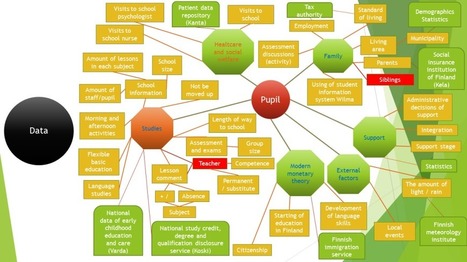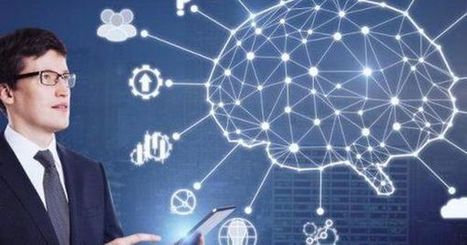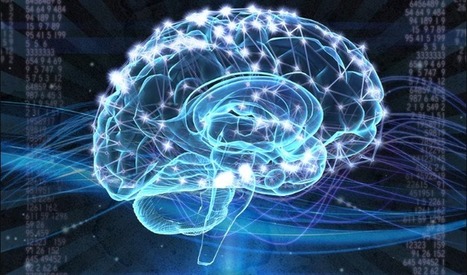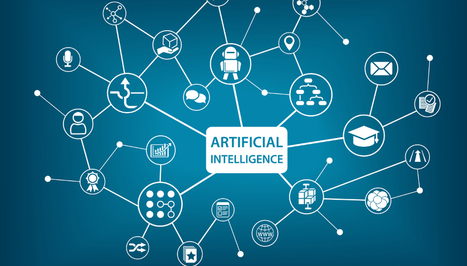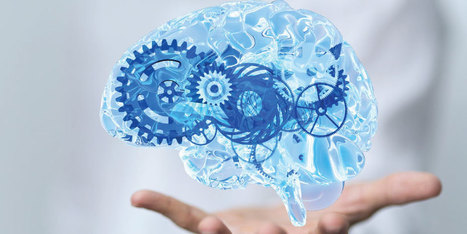 Your new post is loading...
 Your new post is loading...
Executives should be helping to reduce jobs in which AI and machine learning take over boring tasks, while humans spend more time with higher-level tasks.
Via Jesús Hernández
AI isn't going to be the major job killer that many fear.
Large-scale data gathering and quantum leaps in processing power have set the table for major advancement in artificial intelligence. Yet there’s a growing body of evidence that the field of AI is poised to move into a whole new dimension, one where AI not only imagines the real world, but can begin to make accurate decisions on what’s real and important, what’s not — and thus predict what’s coming next. “Computers are really good at memorization,” Carl Vondrick, research scientist at Google Inc., said during a presentation at the Re-Work Deep Learning Summit in San Francisco Thursday. “The problem is teaching them how to forget.” Vondrick’s research has focused on one of the most vexing challenges in today’s online world: how to make use of the massive database of unlabeled videos that clog nearly every corner of the web. It’s one thing to swoon over a cute baby or funny cat video. It’s another to learn from it. The Google research team decided the best approach was to use millions of unlabeled video hours to train deep learning neural networks to reach a better understanding of the world. By drawing on the vast cache of freely available footage, the AI-enabled network could correctly interpret not only what it saw, but what would happen next. In examples presented at the conference, Vondrick showed videos of people approaching each other and then the network decided, mostly correctly, what action would occur as a result. A hug, handshake or “high five” was often the behavior based on the human interaction captured on video. The deep learning research is important because growing dependence on robots will demand that the machines be able to interpret human actions as observed. If a human reaches for a doorknob, it would be highly inconvenient if the robot decides to slam the door. Intriguingly, the Google researchers have been extending the deep learning model to include sound as well. Summit attendees heard a clip of people singing “happy birthday” and as the video image was revealed, it showed that the network correctly predicted there would be an image of a candle in the segment. At 74 percent accuracy, deep learning systems are coming along well at predicting action, getting closer to human rates approximately 10 percentage points higher, according to Vondrick. “This task is still pretty hard and we don’t always get it right,” Vondrick admitted. Vondrick’s research is based on a methodology known as adversarial learning, which essentially pits two networks in competition with each other. One network generates real images and the other is tasked with analyzing them and rendering a decision on whether they are genuine or fake. This technique has also been recently employed by Ian Goodfellow, staff research scientist at Google Brain, who has become a leading authority in “generative adversarial networks” or GANs. In Goodfellow’s work, GANs create photos and sounds of the real world. “GANs are generative models based on game theory,” Goodfellow explained. “They open the door to a wide range of engineering tasks.” These tasks encompass a variety of deep learning models where machines can be asked to turn a brown horse into a zebra.
From a kindergartener getting a participation ribbon at his swim meet to a Nobel Prize winner having her life’s work …
Artificial intelligence is tipped to affect every occupation in Australia. Search our database to find out how your job is affected — if you're game.
|
Artificial Intelligence (AI) has been quietly infiltrating society in every way. Tom shares how AI is being used to improve education.
Via Grant Montgomery
How will Artificial Intelligence (AI) in the Enterprise Impact Humans?
Via TechinBiz
Spread the loveArtificial intelligence (AI) is changing the landscape of higher education. According to Dr. Keng Siau, artificial intelligence will “perform an array of general tasks with consciousness, sentience and intelligence.” That could mean that higher education may no longer be the path to a professional career. University degrees have always led to professional careers; AI may change that path and offer new forms of learning. Ultimately, AI will change the way colleges have approached education. Complex data and collaboration Artificial intelligence will disrupt higher education; there’s no doubt of that. Already AI has been assuming some of the more …
Via NikolaosKourakos
D’ici 2030, la Chine ambitionne de devenir le numéro un mondial dans le domaine de l'intelligence artificielle, menaçant la domination des Etats-Unis.
Elon Musk a demandé aux autorités de réguler l'intelligence artificielle, craignant de la voir prendre le contrôle sur l'homme. Mark Zuckerberg juge..
|
 Your new post is loading...
Your new post is loading...
 Your new post is loading...
Your new post is loading...






